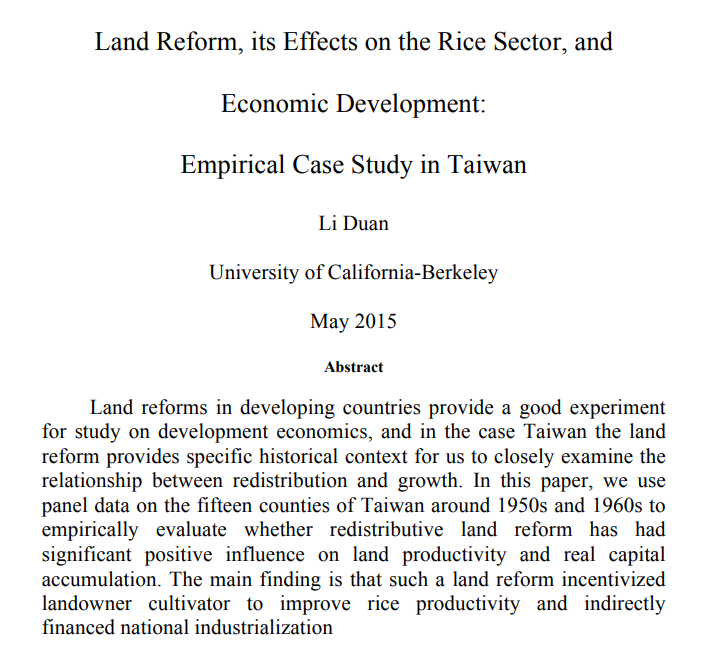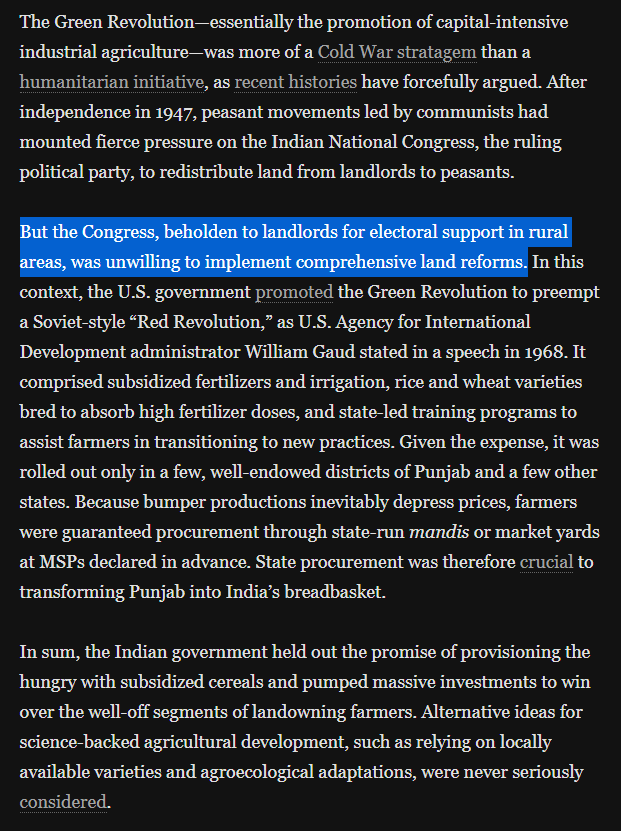
One of the things I would really respect all the pro-Taiwan "agricultural historians" doing research on is how India's agriculture policy from the 60s until now has favored existing landholders at the expense of smaller farmers... scientificamerican.com/article/farm-p…
...and how Modi's proposed deregulation of agricultural markets is not about redressing the power imbalances created by these policies, but exacerbating them to the benefit of domestic food distributors and retailers/e-retailers like Reliance. 

But no, I guess these "historians" would rather spend their time writing thinly-veiled apologia for Imperial Japan instead.
So brave, much respecc
@timeswang
So brave, much respecc
@timeswang
Indeed, post-1950 land reform is one of the few areas where Taiwan arguably *did better than any other government in Asia*. It is something that Taiwan can justifiably be proud of. Even China partly copied Taiwan's policies here, when it de-collectivized agricultural land in 1978 

The TLDR of this is that when you break up large holdings of agricultural land, the increased effort and attention former tenant farmers now pay to the land creates improvements in productivity that are similar to mechanized, capital-intensive agriculture 

But India never did this. As a result, India's agricultural productivity depended on expensive mechanized/chemical inputs and overpumping of groundwater that arguably was a key driver of India's economic malaise from 1950 to 1990. 

Making things worse, India decided that it would regulate landlords instead of just redistributing their land - which made things worse: landlords would rather let land sit fallow than be subject to state regulation, and peasants were unable to find land to farm 

And now, instead of tackling the problem using Taiwan as an example, India is again pursuing policies which make the situation worse, not better.
If Taiwan really wanted to help India, maybe it should help them with real land reform instead of doing a quasi-alliance vs China.
If Taiwan really wanted to help India, maybe it should help them with real land reform instead of doing a quasi-alliance vs China.
But then "preppy proggos" like @wilfredchan are perfectly happy to ignore the farmers that comprise the main productive force in more than half the countries of Asia, while academics like James Lin ignore helping India in favor of writing apologia for Japanese colonization
/end
/end
• • •
Missing some Tweet in this thread? You can try to
force a refresh




